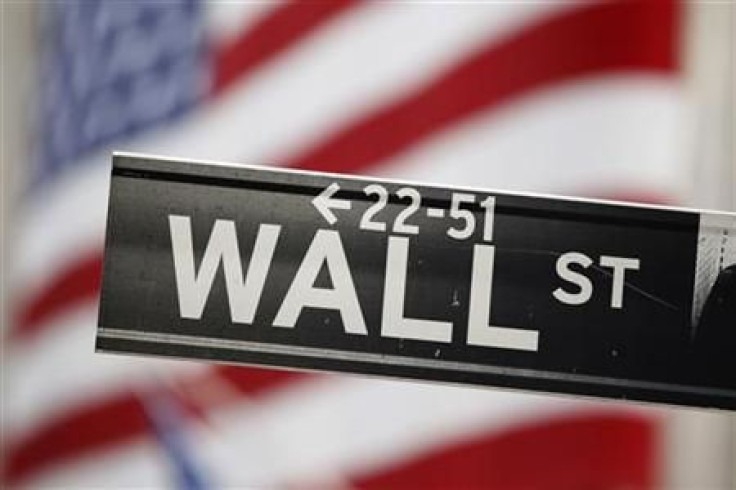Analysis: Volcker pay curbs spark fears of Wall St. exodus

The Volcker rule has created a new battlefield over Wall Street pay that banks fear will send their star traders and hedge fund advisers fleeing.
The roughly 300-page proposal that was released earlier this month is fuzzy at best, but it makes clear that banks cannot pay their in-house top talent any type of bonuses that could encourage proprietary trading.
Proprietary trading, which includes speculative bets banks make with their own capital, would be banned under the rule, while trades for client interests would still be allowed.
The idea of rolling up pay with the enforcement mechanism is unlikely to elicit much sympathy from an American public still smarting over big payouts on Wall Street while unemployment is at painfully high levels.
However, it is sending chills through banks who fear they may lose key talent.
Basically (banks) are saying, 'Look let's try not to tell our traders this because we don't want them fleeing even before the final rule is adopted,' said a lawyer who works closely with trading desks and requested anonymity to discuss the regulators' proposal. A final version of the rule will be issued next year.
It might be bad once it is finally adopted but this is terrible.
Wall Street has reason to worry. High-profile traders have already left firms like Goldman Sachs and Morgan Stanley to escape the ban on proprietary trading by banks which was mandated by the 2010 Dodd-Frank financial oversight law.
The question now is how they can keep their remaining traders and hedge fund advisors on board to serve clients active in trading markets, which is allowed under the proprietary trading ban.
The proprietary trading ban is known as the Volcker rule, after former Federal Reserve Chairman Paul Volcker who championed the idea. It was tucked into Dodd-Frank as part of efforts to avoid a repeat of the 2007-2009 financial crisis.
It prohibits banks, who receive federal backstops like deposit insurance, from trading for their own profit in securities, derivatives and certain other financial instruments. It will also prohibit banks from having more than a 3 percent ownership interest in hedge funds or private equity funds.
CAUTIOUS OF LOOPHOLES
The combination of the focus on pay and how the overall proposal is written would mostly result in traders being paid based on fees and commissions instead of on the performance of trades done for customers, industry lawyers said.
That will likely translate into smaller paychecks.
Any time you talk about a limit on compensation systems somebody, by definition, is going to be making less money than before, said Donald Lamson, a lawyer with Shearman & Sterling who formerly worked at the Office of the Comptroller of the Currency, a regulator of large U.S. banks.
Supporters of the Volcker rule are not shedding tears for bank traders who may have to go elsewhere to earn close to what they did before the financial crisis and government bailouts.
The point of the rule is to have banks focus on clients needs, not to make big paydays on speculative trades, they argue.
For now they are cautiously supportive of the approach being taken by regulators while watching for any loopholes.
The question is whether just saying that compensation arrangements cannot encourage proprietary risk taking is enough or whether they have to be more specific, said Marcus Stanley, policy director for the group Americans for Financial Reform.
HOW MUCH IS A STAR WORTH?
The proposed rule is vague in several areas regarding pay and regulators are asking questions about how the issue should be handled. This will give banks and supporters of the Volcker rule a chance to lobby for changes in the final version.
In the current proposal, it appears employees involved directly with hedge funds and private equity funds would likely be hit in the wallet less than those that work directly on trading desks, industry lawyers said.
Regulators, for instance, yielded to banks' request that carried interest, the profits fund managers are taxed on at the lower capital gains tax rate rather than at income tax rates, not be curbed in a way that would impact its use as a form of compensation.
Banks desperate to keep an employee and stay within the rule could decide to take unusual steps like providing a trader with a large base salary.
Given the overall impact the Volcker rule will have on trading and hedge fund profits, however, banks may reach a point they have to decide how big of a deal it will be to lose some talented employees.
Even if the person is a star trader his hands are going to be tied going forward so he might not be worth as much to (the bank) any more. said Daniel Meade, a lawyer with Hogan Lovells.
(Reporting by Dave Clarke; Editing by Tim Dobbyn)
© Copyright Thomson Reuters 2024. All rights reserved.











